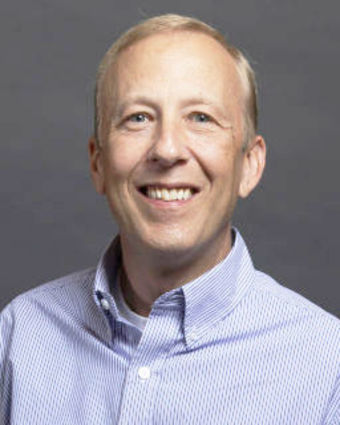Re-Imagining Rural Sessions Begin Next Week
September 9, 2020
The Blaine County Extension Service has partnered with several other agencies to facilitate a series of three meetings that are free and open to the public. Re-Imaging Rural will be presented in a virtual community gathering format on September 15, September 29, and October 13 from 6:00-8:00 p.m. in Chinook at the Commercial Building on the Blaine County Fairgrounds. Anyone interested in these sessions is encouraged to RSVP with the Blaine County Extension Office by September 11. The venue was chosen for its expansive space where Centers for Disease Control and Prevention guidelines for social distancing can be easily followed.
The Montana Community Foundation, Burton K. Wheeler Center, Montana State University Extension, and Main Street Montana-a Rural Partners organization with Governor Steve Bullock's Office-have teamed up to sponsor these meetings. The sessions, meant to facilitate a conversation locally, are designed to help members of communities learn, connect, and lead change.
"Every project and idea has to start somewhere, and we hope you are willing to be a part of this exciting program," Blaine County Extension Agent Julianne Snedigar stated. "The main goal is to bring everyone together to revitalize our rural Montana communities. We hope to see many people in attendance representing all of the different businesses, groups, and individuals that live in Blaine County."
Snedigar went on to describe this local event as "a great opportunity for people to gather, learn, and develop ideas to keep our communities thriving." The conference series, Re-Imagining Rural sprang from a desire to help create a vibrant future for Montana's rural communities. Its mission is to bring together people who are passionate about creating robust rural places and growing local capacity.
The event includes three statewide virtual sessions of rural communities across Montana who will hold a conversation focused on creating innovative ideas for their communities. Each session features a virtual speaker followed by a local, discussion that will focus on incorporating the ideas or applying the fresh perspectives to the local context, exploring how the ideas presented might work locally. Communities will be able to connect and interact with each other and can choose to work on a local community project.
On the first session date, September 15, the featured speaker will be rural expert Ben Winchester. A Senior Fellow at the University of Minnesota Extension Center for Community Vitality, Winchester will share his "rural brain gain" research that counters negativity common in current discussions of rural communities. Key research findings include
• The population of residents in the 30-49 year old age group has increased in some rural counties;
• These newcomers have significant education, skills, connections, spending power, and children;
• People migrate to rural communities for 1) a simpler life, 2) safety and security, 3) affordable housing, 4) outdoor recreation, and 5) quality schools;
• Communities can work together to attract newcomers and create a quality of life that all residents enjoy.
In addition to his research that identifies the social and economic opportunities of this migration, Winchester is analyzing rural community leadership, especially as it affects community-wide requirements to support the public sector to "keep the town running."
The speakers in the second session to be held on September 29 will be Deb Brown and Becky McCray of Save Your Town. These two women will challenge communities to think about and embrace an "Idea Friendly" approach to community work that doesn't depend on a bureaucracy or formal structures and organizations. Working from the premise that small towns can best be saved by their own people using their own resources, Brown and McCray will walk the group through practical "placemaking steps" to make downtown a more vibrant place without spending a fortune. According to Brown and McCray, small towns thrive when they set themselves apart.
Brown and McCray will also share the 3 R's of Rural Recovery: Restarting Local Shopping, Rebuilding the Local Economy, and Refilling the Business Pipeline.
For the final Re-Imagining Rural session on October 13, there will be a question and answer session with the speakers and a sharing of ideas from participating towns. That will be followed by the development of an action plan.
Concerning the event, Snedigar said: "I hope we get a large crowd to attend as I'm sure these sessions will create some great local conversation that leads to positive action!"
About the sponsors, since 1988, the Montana Community Foundation (MCF) has worked to build stronger communities. Their efforts with donors, charitable organizations, cities and towns play a critical role in both philanthropic and community development. Since their founding, the MCF has reinvested more than $68 million in Montana. In the last ten years, they have awarded more than $31 million in grants. Their website features a quote from Sara Walsh that accurately describes the state: "Montana is just a small town with really long streets." Although the speaker of the quote could not be clarified, Montana Senator Mike Mansfield, who served as Senate Majority Leader longer than any person in U.S. history, once described Montana as a small town with an 800-mile long Main Street.
Another sponsor, the Burton K. Wheeler Center hosts and promotes local events like Re-Imagining Rural in an effort to preserve former Senator Wheeler's belief that the discussion of public policy is the cornerstone of democracy. Wheeler served in the United States Senate from 1923-1947 and is noted for his lifelong defense of civil liberties and his commitment to economic opportunity for all Montana citizens. The Center describes itself as "the only educational forum in the state where issues that affect Montana and the region are taken up in a regular, systematic, and rigorously non-partisan way."
Although the Wheeler Center has a close working relationship with Montana State University (MSU), it is an independent, non-profit organization with its own board of directors. The Center depends entirely on private contributions for its programs and administration.
MSU-Extension names its mission as one "to improve the lives of Montana citizens by providing unbiased, research-based education and information that integrates learning, discovery, and engagement to strengthen the social, economic, and environmental well-being of individuals, families, and communities."

Finally, the Rural Partners project focuses on empowering small towns in Montana to stay ahead, supporting their efforts, and ensuring economic opportunities are shared throughout the state. Understanding the conditions of economic discrepancy within the state and taking what was learned in the first stages of the Main Street project, Governor Bullock and Lt. Governor Mike Cooney launched the Main Street Montana- Rural Partners Initiative in September 2018. In the context of rural communities and their unique challenges and positions, they are asking the questions: What's working? What isn't working? How can agencies and programs work better for businesses and Montanans?
Anyone with questions about the Blaine County Extension's virtual community gathering or any individuals interested in participating in the Re-Imagining Rural sessions are encouraged to contact the Blaine County Extension Office by calling 357-3200 by September 11.



